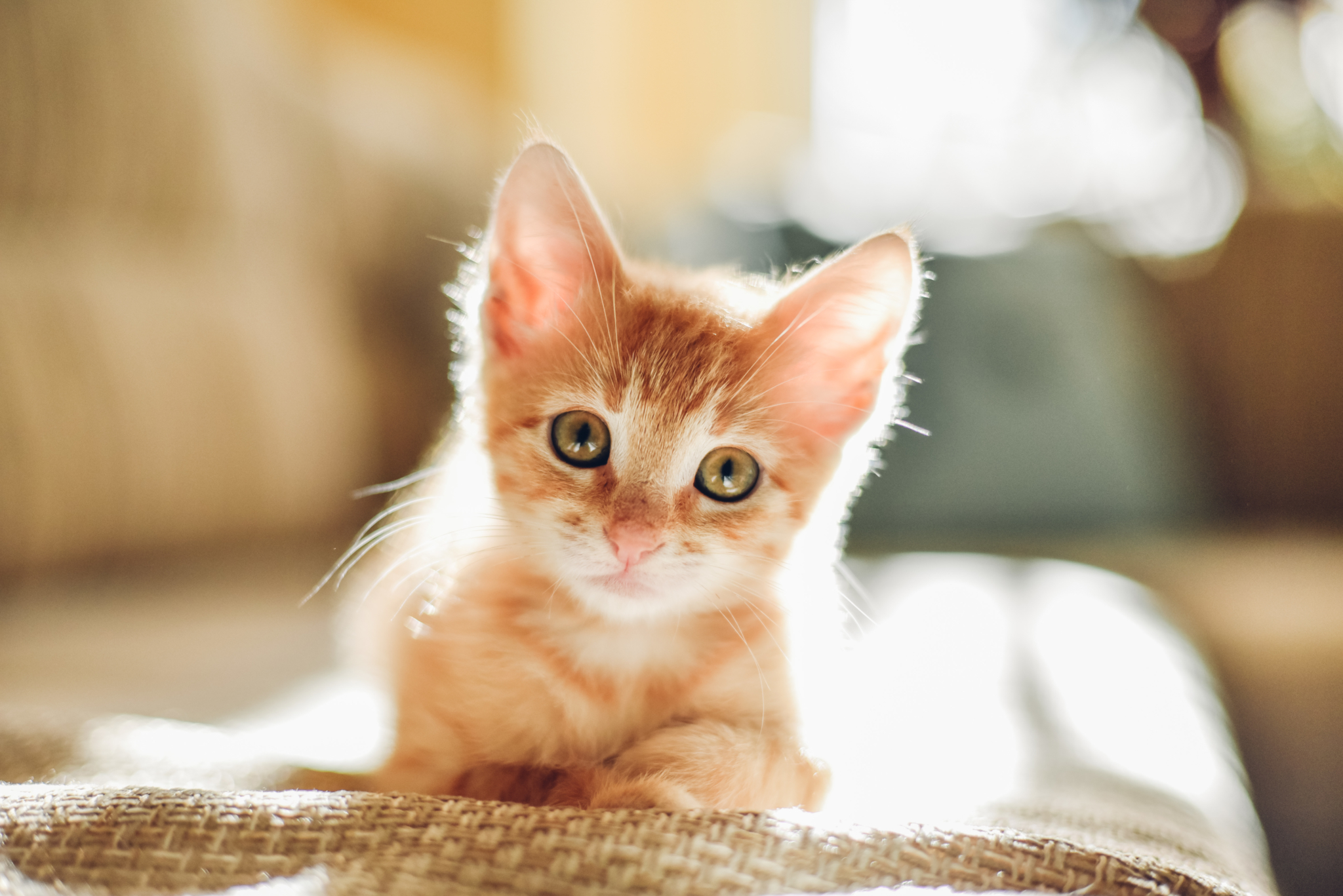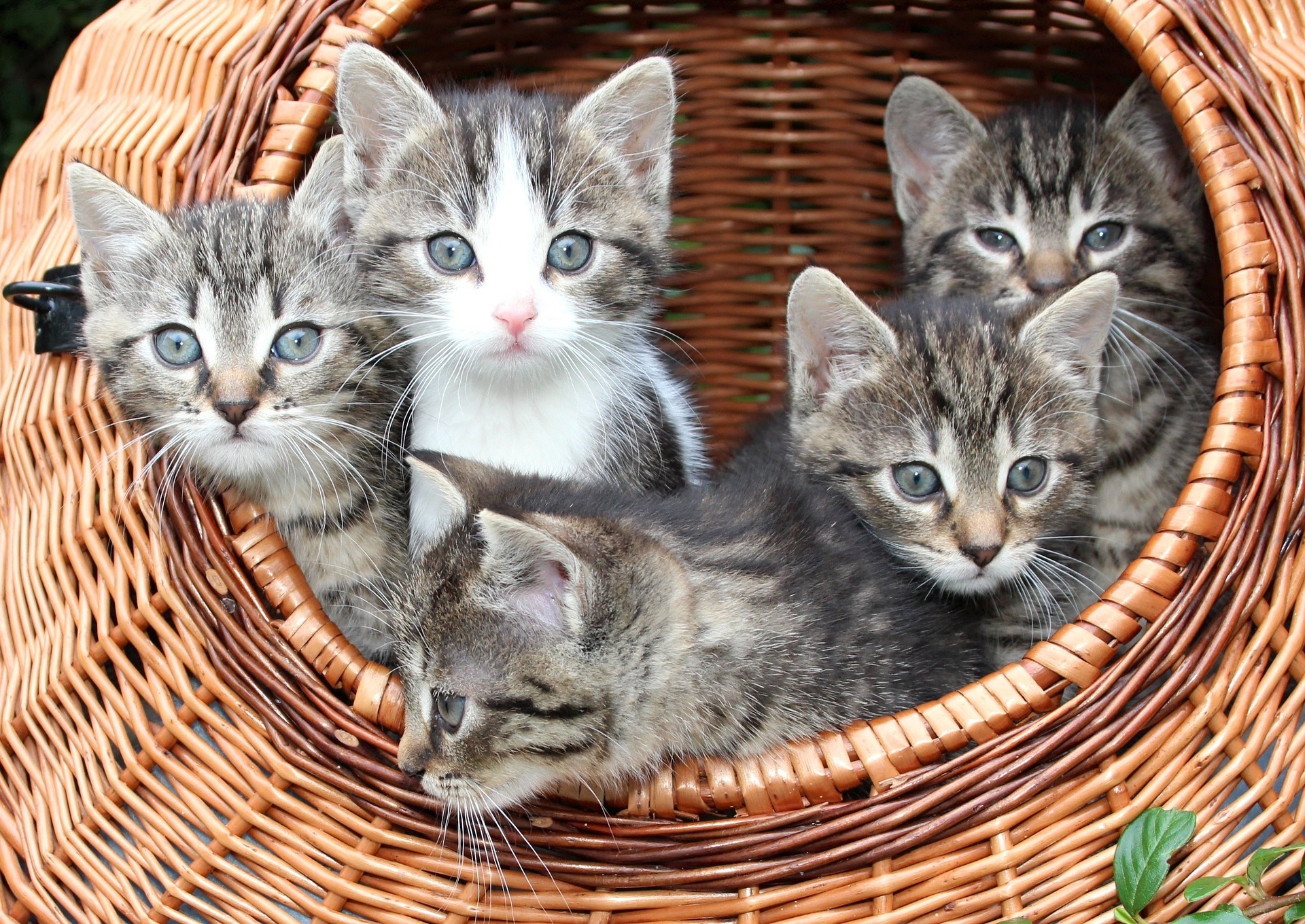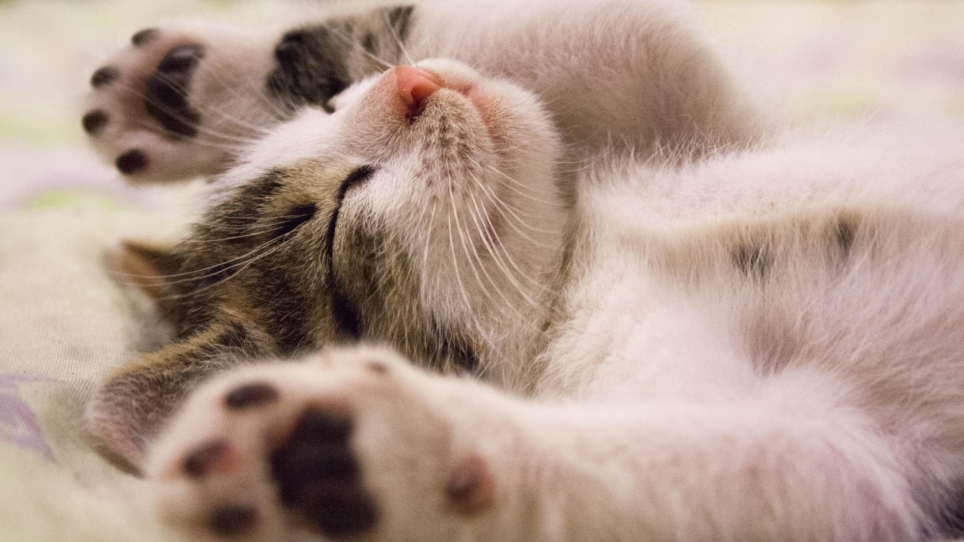Bringing a kitten into your family can be an exciting and wonderful experience. It’s essential to be prepared. Your new little friend is just like a baby; they are now part of your family and rely on you for love, companionship and safety.
Change is stressful for our pets, so please go straight home after adopting your cat or kitten. It can be traumatic travelling in the car to a new environment. Your kitten may also have left the warmth and companionship of their siblings behind. It usually takes time for a cat or kitten to feel comfortable in a new home and to meet new people.
Here are some tips for success!
Setting up for your new kitten
Providing a safe, quiet area for your kitten to relax is essential. A bathroom or laundry can be overwhelming as the sound of the washing machine or shower can be scary. A bedroom or spare room is ideal. This way they can see you go about your day without having to interact if they choose not to do so.
In the room should be a cat carrier (with the door removed) or cardboard box for the cat to hide in. The room should be set up with food, water, soft bedding, a range of different toys, a scratching pad and litter tray.
You should make sure you feed your kitten on the opposite side of the room to its litter tray. No one likes to eat where they toilet - especially cats. Clean the litter tray regularly - cats are very clean animals, and your kitten will want to toilet elsewhere if their litter tray is quite soiled.
AWL recommends feeding a high quality commercial wet and dry food that suits the life stage and health status of your cat. For more information about what to feed your kitten, check out our blog.
Kittens under 6 months of age need to eat 3 meals of kitten specific tinned wet food and dry food each day. It is always best to consult your vet over the lifetime of your cat to ensure they are getting their nutritional requirements met.
Always provide your kitten with access to fresh, clean water. Never give your kitten milk or cream. Most cats are lactose intolerant and drinking milk can make your kitten sick with diarrhoea and vomiting.
Most kittens are very active and this can result in lots of mess! If they are kicking up litter, we recommend using a covered litter tray or placing a sheet under the tray so it is easy to scoop up and discard.
If the kitten is climbing up on curtains, restricting them from that area is best. For other unwanted behaviours, we look to work out why they are doing it, then divert them into a more positive behaviour then reward them for the new behaviour.
Raising your voice, using harsh tones, pushing an animal around or intimidating them is never okay. Like us, it instils fear and will go to create trauma and damage the bond you have with them, creating further unwanted behaviours.
Meeting the family
Gradually introduce kitty to the other members of your household. Letting your small kitten roam around the house too soon, in what they would sense as a huge, strange place, can be too scary and overwhelming for them.
If your cat begins toileting outside of their litter box, or showing other signs of stress, reduce their access to new spaces. If your kitten becomes distressed or ill, please consult your vet.
Regularly spend quiet time with the kitten in their room so they can become comfortable interacting with you and your family. Establish consistent routines and limit visitors, especially while settling your kitten into its new environment.
If you already have a resident pet, bringing a little stranger into your home will probably cause them stress. Imagine coming home to find a strange person in your loungeroom! Ensure you separate your resident pet and the new kitten at first, then slowly introduce the pets to each other with supervised, positive introductions between a partition.
Groom your kitten regularly with a special cat brush (ie, Zoom Groom), which you can purchase from a pet goods supplier. Starting grooming from kittenhood will get them used to it.
Provide your kitten with suitable toys to play with. A cardboard box also makes a great cubby house where your kitten can hide.
Spend time socialising with your kitten through interactive play. Take note which toys your kitten is playing with and their favourite activities and look to provide more of that.
A scratching pad is essential to keep your kitten’s nails trim and helps them destress.

Safety
Ensure that your kitten’s microchip details are up to date - change to address or phone number by contacting Dogs and Cats Online and your microchip registry. To find out if your animal is on a microchip registry, you can search their microchip number at petaddress.com.au.
Identification in the form of collars, tags and microchips are extremely important for your kitten to be returned to you if they do get lost.
You can find out more about how to keep the details up to date on our blog.
Vaccinations
Keep your kitten safe by ensuring that their vaccinations are always up-to-date and regularly using flea and worm protections. Effective spot-on medications such as ‘Revolution’, ‘Advantage’, or ‘Frontline’ target both fleas and worms. Speak to your veterinarian about how often to worm your kitten.
By vaccinating your kitten, you can prevent them contracting severe and potentially fatal illnesses. Many feline diseases are common and highly contagious. Some of them and the conditions that they cause cannot be treated. Building your cat’s immunity against disease starts when they are young.
For more information about your kitten’s vaccination requirements, head to our blog.
It’s safer indoors
It’s a good idea to keep cats and kittens indoors. Providing access during the day to a fully contained outdoor area using a cat enclosure or ‘catio’ is also great. All cats should be indoors at night as they are a target for foxes.
Allowing your cat outdoors without being contained to the property is the single biggest reason why shelters around the world are overflowing with cats and kittens.
Cats will be tempted to jump the fence (they are amazing climbers!) and become lost. They are then at risk of being trapped or chased far from home by neighbourhood cats and dogs, falling into drains, or getting hit by a car.
The commitment to keep our kittens safe from harm should be the same commitment we provide for our dogs or any of our loved ones.
Keeping your cats and kittens indoors protects them from fighting with other cats in the neighbourhood and saves our wildlife from being hunted and killed. There is a high probability of death or serious injury if your cat is hit by a car or is involved in a fight with other animals. These can be quite common occurrences.
Most people whose cats have jumped the fence simply never see or hear from them again. They do not know what has happened to them and that can be heartbreaking for all involved.

Preventing injury and death
Keep dangerous objects and substances away from your kitten. Cats and kittens are naturally curious. Your kitten will want to explore their house and play, which are natural feline behaviours that you should encourage.
Take care of your kitty by regularly looking for, and removing, potentially life-threatening objects and substances that they may encounter. Even kittens can climb onto furniture, kitchen and bathroom counters and open packaging with their teeth and claws.
Chemicals
Lock away chemicals and cleaning products. Some breeds of cat are exceptionally curious and can open cupboards with their paws!
String things
Your kitten or young cat can chew and ingest cords, string and elastic, resulting in a very expensive veterinary bill. Make sure that you keep ribbons, elastic bands, fabric coated hair elastics and hair ties out of their reach in a drawer or cupboard. It is easy for a kitten to find and play with a hair elastic which has been accidently dropped on the floor.
Your kitten can also get tangled up in string or the cords on curtains. This is particularly dangerous as it can lead to strangulation. It’s also a good idea to keep wand cat toys, which have a cord, shut away when you are not playing with your kitten.
For more pet advice, hit the button below!
